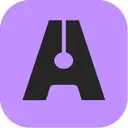AI Data Science Community

What is kaggle.com?
Kaggle serves as an online platform dedicated to data science and machine learning activities. Functioning as a hub for competitions, datasets, notebooks, and educational courses, Kaggle holds the distinction of being the largest global community focused on data science endeavors. With a comprehensive suite of tools and resources, the platform is designed to facilitate the realization of data science objectives. Within Kaggle, users can access a diverse array of data spanning domains such as computer science, health, and sports, among others. The platform accommodates user engagement through multiple avenues, including the option to register using Google, email, Facebook, or Yahoo accounts. This enables users to immerse themselves in the Kaggle community, partake in data-centric challenges, acquire new proficiencies, and foster collaborative interactions with fellow data enthusiasts.
What are the benefits of kaggle.com?
Kaggle stands as a widely embraced platform catering to the interests of data science and machine learning enthusiasts. Notable advantages encompass:
- Data Repository: Kaggle boasts an extensive repository of datasets, facilitating exploration, analysis, and the construction of machine learning models. Users have the option to contribute their datasets or discover those from diverse sources within Kaggle.
- Competitive Arena: Kaggle serves as the host to numerous competitions, tasking participants with addressing real-world predicaments via data science and machine learning methodologies. Engaging in these contests offers the chance to assess one's aptitude, gain insights from peers, attain rewards, and garner the attention of prospective employers.
- Interactive Notebooks: Kaggle provides a platform for creating and disseminating interactive notebooks featuring code, data, visual representations, and elucidations. These notebooks serve as avenues to showcase personal endeavors, foster collaborative ventures, or glean best practices from accomplished peers.
- Educational Courses: Kaggle extends complimentary online courses spanning diverse facets of data science and machine learning. Enrollees can tailor their learning pace, engage in practical exercises, and obtain certificates upon course completion.
- Community Engagement: Kaggle nurtures an animated community uniting enthusiasts passionate about data science and machine learning. Within this collective, knowledge dissemination, constructive feedback, and mutual assistance thrive. Users are empowered to partake in discussions, pose inquiries, offer solutions, and trailblaze inspiring profiles.
How much does kaggle.com cost?
Utilizing Kaggle.com does not incur any usage fees, though the platform presents certain premium options including private datasets, exclusive competitions, and tailored branding, which are available for a cost. Detailed insights into Kaggle.com and its functionalities can be obtained via its official website. Additionally, exploring the assortment of datasets and code notebooks accessible on Kaggle.com furnishes further comprehension of its offerings.
What are the limitations of kaggle.com?
Several limitations associated with Kaggle are as follows:
- Idealized Datasets: Kaggle often supplies pre-processed and sanitized datasets for competitions. However, this might deviate from the reality of messy, incomplete, or noisy data encountered in real-world scenarios. Consequently, learners may miss out on acquiring the skills to handle such intricate data, including domain expertise and data engineering proficiency.
- Metric-Centric Approach: Kaggle's emphasis on optimizing a single metric, like accuracy or F1-score, may fail to encompass the nuanced trade-offs and intricacies inherent in real business challenges. This might hinder the development of skills required to define, measure, and communicate project success, along with effectively presenting results to stakeholders.
- Resource and Time Constraints: Kaggle imposes restrictions on the resources and time accessible to users during each session. For instance, users are constrained to utilizing up to 30 hours of GPU and 20 hours of TPU time per week. Furthermore, session durations are capped at 12 hours for CPU and GPU sessions, and 9 hours for TPU sessions. Such limitations could curtail the exploration of intricate models demanding increased computational power and time.
- Competitive Atmosphere: Kaggle's competitive environment may inadvertently discourage collaborative efforts and the sharing of insights. This might deprive participants of the valuable feedback and diverse perspectives fostered through interaction with other data scientists. Consequently, learners may overlook the experience of teamwork, potentially fostering habits of overfitting or solution replication, rather than nurturing their creativity and innovation.
- Language and Tool Restrictions: Kaggle confines users to employing only Python and R languages. This exclusivity precludes the utilization of alternative languages or tools that could be pertinent to data science tasks. This could restrict learners from leveraging tools like SQL, SWIFT, Excel, Power BI, Tableau, or other relevant software that might be beneficial for specific problems.
How do I get started with kaggle.com?
To initiate your engagement with Kaggle, adhere to these fundamental procedures:
- Establish Your Kaggle Profile: Formulate your Kaggle profile by enlisting through email credentials or linking your Google or Facebook account. Elevate personalization by integrating a biography, proficiencies, accomplishments, and affiliations with social media platforms.
- Select Your Platform: Determine the programming language and tools to employ for your data science and machine learning endeavors. Kaggle predominantly accommodates Python and R, encompassing diverse libraries and frameworks primed to support your undertakings.
- Harness Educational Resources: Capitalize on Kaggle's assortment of free online courses spanning an array of data science and machine learning facets. Subjects encompass Python, SQL, data visualization, machine learning, deep learning, and more. Tailor your learning journey by enrolling in these courses and dictating your pace.
- Exercise with Datasets: Kaggle grants access to an extensive repository of datasets that facilitate exploration, analysis, and the formulation of machine learning models. You possess the latitude to contribute your datasets, or alternatively, unearth datasets originating from other sources within the Kaggle ecosystem. Leverage Kaggle notebooks to synthesize interactive code, data, visual representations, and elucidations.
- Engage in Competitions: Participate in Kaggle's array of competitions that task you with resolving real-world quandaries utilizing data science and machine learning methodologies. These competitions proffer opportunities to scrutinize your capabilities, glean insights from peers, attain rewards, and cultivate visibility among prospective employers. Begin with knowledge competitions, which are often tailored for beginners and do not feature monetary rewards.
How can Kaggle be used to advance machine learning skills?
Kaggle can be used to advance machine learning skills by engaging in various features offered on the platform. Firstly, Kaggle Competitions allow individuals to apply machine learning techniques in real-world scenarios, challenging them to develop and improve their problem-solving skills. Additionally, Kaggle provides a large repository of datasets that users can utilize to practice analyzing data, manipulate variables, and construct machine learning models. Learners can also utilize Kaggle's extensive library of public notebooks to study code implementations and learn from the work of others. Moreover, Kaggle offers courses that cover a wide range of topics in machine learning and data science, allowing individuals to systematically build their knowledge and skills. Lastly, the Kaggle community is an excellent resource where users can discuss theories, ask questions, and receive feedback, which facilitates continuous learning and development in the field of machine learning.
What types of datasets can be found on Kaggle?
Kaggle hosts a diverse collection of datasets spanning various domains and topics, making it a valuable resource for data science projects. Users can discover datasets related to finance, such as Bitcoin historical data at 1-min intervals, providing insights into cryptocurrency trading patterns. In the realm of agriculture and food, datasets such as the Fruits-360 dataset offer extensive image data of fruits, vegetables, and nuts, aiding in image classification projects. For sports enthusiasts, Kaggle offers datasets like international football results, covering nearly 50,000 matches from 1872 to 2024, which can be used for sports analytics. Additionally, academic researchers can access the arXiv dataset containing metadata of over 1.7 million scholarly papers across various STEM disciplines. These publicly accessible datasets support projects ranging from beginner-level exploration to advanced machine learning applications.
What opportunities are available through Kaggle competitions?
Kaggle competitions offer numerous opportunities for individuals at varying skill levels to apply and showcase their expertise in data science and machine learning. These competitions are often co-hosted by leading research organizations and companies, presenting real-world challenges that require innovative solutions. Participants have the chance to win substantial cash prizes, such as those available in the AI Mathematical Olympiad and Konwinski Prize competitions. Furthermore, these contests serve as platforms for recognizing talent, allowing winners to gain visibility and attract potential job offers from industry leaders. Participants can also benefit from the collaborative and competitive environment, enabling them to learn from peers, exchange ideas, and develop new approaches to problem-solving. Engaging in Kaggle competitions can significantly enhance one's resume by demonstrating practical experience and success in tackling complex data science tasks.










.webp)






















